Which NBA Western Conference teams did best and worst during the offseason?
With all the major free agents having found new homes and teams now busy preparing for the start of training camp next month, it's time to hand out grades for how teams managed to reshape their rosters, starting yesterday with the Eastern Conference and concluding today with the West.
Although West teams were busy, it doesn't appear this summer dramatically changed the playoff picture. The top nine West teams in preseason over/under win totals from Caesars Sportsbook are the same top nine as last season. The teams changing places within that group are affected more by health than offseason moves. Still, some West teams did better than others.
These grades are on a curve, with B as the most common outcome, and reflect the opportunities teams had to improve their rosters via the draft and cap space to use in free agency. We're interested not only in which teams have helped their chances for 2021-22 but how well they took advantage of their flexibility to do so.
Keeping that framework in mind, let's get to the grades, which are in alphabetical order:
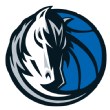 Dallas Mavericks: C
Dallas Mavericks: C
When the Mavericks were unable to land one of the top free agents on the market, staying over the cap and re-signing Tim Hardaway Jr. (four years, $75 million) was a reasonable Plan B. Dallas did well to add Reggie Bullock using the non-taxpayer midlevel exception and Sterling Brown with the biannual exception, supplying needed shooting.
My biggest concern is Dallas hiring Jason Kidd to replace Rick Carlisle as head coach. After a turnaround defensively in Kidd's first season with the Milwaukee Bucks from 29th in defensive rating to second, the Bucks were never better than average defensively in Kidd's remaining two-plus years in Milwaukee. Many of those same players produced the league's best defensive rating the next two seasons under Mike Budenholzer. Will Kidd dial back the defensive pressure with the Mavericks?
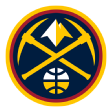 Denver Nuggets: B-
Denver Nuggets: B-
The 2021-22 Nuggets will look a lot like last year's roster. Denver re-signed free agents Will Barton (two years, $30 million guaranteed, plus $2 million in incentives), JaMychal Green (two years, $17 million) and Austin Rivers (veterans minimum), bringing back nine of the 10 players who saw more than 50 minutes of action in the 2021 playoffs.
The one big change for Denver was letting veteran forward Paul Millsap (still unsigned) walk in free agency in favor of adding Jeff Green from the Brooklyn Nets. Green brings more defensive versatility and floor spacing but hasn't been as productive as Millsap while playing on a series of minimum-salary contracts.
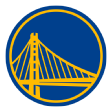 Golden State Warriors: A-
Golden State Warriors: A-
Despite pocketing their taxpayer midlevel exception, the Warriors managed to upgrade their bench by adding veterans Nemanja Bjelica, Andre Iguodala and Otto Porter Jr., all signed for the veterans minimum. Golden State also will benefit from getting Klay Thompson back after two seasons lost to ACL and Achilles tendon injuries, though the Warriors don't get any credit for that here.
In the long run, Golden State's pair of lottery picks will have more impact on the team's outlook. I liked both Jonathan Kuminga and Moses Moody where they were drafted, No. 7 and No. 14, respectively.
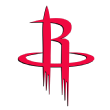 Houston Rockets: B+
Houston Rockets: B+
Most likely, the Rockets will spend another season near or at the bottom of the West standings as they rebuild following the James Harden trade. This time around, Houston has a whole lot more young talent that could eventually develop into the next great Rockets core, including four first-round picks.
No. 2 overall pick Jalen Green looked as talented as any prospect during the Las Vegas Summer League and No. 16 pick Alperen Sengun showed why he was worth giving up two future picks to add. Fellow first-rounders Josh Christopher and Usman Garuba, the latter fresh off playing for Spain in the Olympics, had good moments as well.
Houston's big veteran addition was Daniel Theis, whose four-year, $36 million deal is good value in terms of annual salary. As the Rockets' young bigs develop, Theis could be a trade chip for them.
 LA Clippers: A-
LA Clippers: A-
Despite financial limitations, the Clippers were able to bring back key free agents Nicolas Batum (two years, $6 million) and Reggie Jackson (two years, $22 million) on team-friendly deals, which was a major coup. I think the Clippers also could benefit from swapping Patrick Beverley and Rajon Rondo for Eric Bledsoe, a more reliable contributor during the regular season.
The Clippers also kept an eye on the future, adding a younger free agent in forward Justise Winslow ($8 million over two years) and three draft picks, two of them (first-rounder Keon Johnson and second-rounder Brandon Boston Jr.) teenagers who were highly touted as prep prospects.
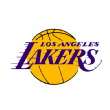 Los Angeles Lakers: C
Los Angeles Lakers: C
As long as Anthony Davis and LeBron James stay healthy, the Lakers look like the favorites to win the West. But it's unclear their offseason moves improved their chances of getting back to the NBA Finals after last season's first-round exit. In Russell Westbrook, the Lakers added a singular talent to help carry the load during the regular season, but they'll have to work around his shooting limitations in a playoff setting.
The Lakers did well to replace the depth lost in the Westbrook trade with a series of veterans minimum signings as well as the value pickup of Kendrick Nunn using the taxpayer midlevel exception. Still, the Lakers don't have as many reliable two-way contributors around their stars as in 2020, when Kentavious Caldwell-Pope and Danny Green played those roles during their title run.
 Memphis Grizzlies: C+
Memphis Grizzlies: C+
Despite returning to the playoffs last season through the play-in tournament, the Grizzlies took a long-term mindset this offseason. They moved up from No. 17 to No. 10 and added a future first-round draft pick in a trade with the New Orleans Pelicans, sending out stalwart Jonas Valanciunas in exchange for Steven Adams and taking a developmental prospect in Stanford's Ziaire Williams.
As a result, Memphis' roster looks weaker before accounting for the internal development of the Grizzlies' young talent. They've done a good job of accumulating depth, but they moved no closer to consolidating it into a stronger core.
 Minnesota Timberwolves: C+
Minnesota Timberwolves: C+
Coming off a 23-49 campaign, the Timberwolves have signed no free agents to full NBA contracts and didn't add a player in the draft. (Minnesota's lottery pick, No. 7, went to Golden State to complete the trade that landed D'Angelo Russell.) The Timberwolves' two moves of note were trades swapping Jarrett Culver, Juancho Hernangomez and Ricky Rubio for Patrick Beverley and Taurean Prince.
The big addition for Minnesota will likely be a full season for head coach Chris Finch, who came in from the Toronto Raptors' bench midseason. The Timberwolves will hope to capitalize on a strong finish that saw them go 9-7 in the season's final month. Still, a little more urgency to upgrade the edges of the roster might have been useful.
 New Orleans Pelicans: D
New Orleans Pelicans: D
Unfortunately, it looks like the Pelicans misread the market when they made the Valanciunas-Adams deal with Memphis to create additional cap flexibility. New Orleans ended up staying over the cap, and the $21 million in salary saved didn't allow the Pelicans to make any difference-making additions.
Instead, they'll replace 23-year-old Lonzo Ball with older and less accomplished guards Devonte' Graham (26) and Tomas Satoransky (29), having given up another protected first-rounder to acquire Graham from the Charlotte Hornets via a sign-and-trade deal.
Valanciunas should prove an upgrade at center, but if New Orleans is going to return to the playoffs after three years in the lottery, it will mostly be about the team's young talent developing rather than offseason moves. And in the long run, the Pelicans have given up some of their stockpile of first-round picks.
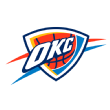 Oklahoma City Thunder: B
Oklahoma City Thunder: B
After suffering bad luck in the lottery, when their own pick came in sixth and the Rockets' pick failed to convey from the Chris Paul-Russell Westbrook trade, the Thunder decided to slowly stay the course on their rebuilding project. Oklahoma City added three more future first-round picks through trades, taking back veterans Derrick Favors and Kemba Walker (the latter quickly waived with a buyout) and sending the pick that came with Walker to Houston for two future ones.
At some point, the Thunder will have to consolidate picks, and the value they got in sending out both No. 36 and No. 34 to move up just two spots to draft Jeremiah Robinson-Earl 32nd was a bad sign. I also wonder whether Oklahoma City might have been better off just keeping the 16th pick and drafting the promising Alperen Sengun.
 Phoenix Suns: B
Phoenix Suns: B
No moves were more important for the Suns than re-signing point guards Chris Paul and Cameron Payne, who returned at reasonable prices. Just $75 million of Paul's new, four-year, $120 million deal is guaranteed, while Payne re-upped for far less than the non-taxpayer midlevel exception.
I like the fit of JaVale McGee as a replacement for injured Dario Saric at backup center, though McGee getting a raise to $5 million after he was a nonfactor with the Nuggets last season was surprising. And swapping backup guard Jevon Carter and a first-round pick for Landry Shamet entering the final season of Shamet's rookie contract might have been a stretch.
 Portland Trail Blazers: B-
Portland Trail Blazers: B-
A sleepy Portland offseason, at least in terms of adding to a roster that came up short against Denver in the first round, was shaken up by last week's trade sending out a protected first-rounder and Derrick Jones Jr. for Larry Nance Jr. Nance should prove an ideal fit backing up multiple frontcourt positions and providing more shooting and playmaking than Jones.
The other big move for the Blazers was replacing longtime head coach Terry Stotts with first-timer Chauncey Billups. Given Stotts' successful track record, Portland is taking a risk. With star Damian Lillard openly questioning his future with the organization, the Blazers need Billups to prove an immediate upgrade.
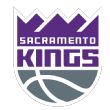 Sacramento Kings: C
Sacramento Kings: C
The best news for the Kings is they were able to re-sign starting center Richaun Holmes for $46.5 million over the next four years, the most they could pay using early Bird rights. The perplexing news is that Sacramento also added two other centers -- including Chimezie Metu, whose salary is partially guaranteed -- giving them five on their roster. That's not including forward Marvin Bagley III, who also can play center.
Swapping Delon Wright for Tristan Thompson looks like a downgrade, and it's unclear where Alex Len (two years, $8 million) fits into a crowded rotation. The Kings should be encouraged about how well lottery pick Davion Mitchell played defensively in helping lead them to the Las Vegas Summer League championship. Still, a return to the real postseason after a 15-year drought seems unlikely.
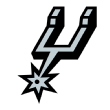 San Antonio Spurs: C+
San Antonio Spurs: C+
The Spurs did well to get Thaddeus Young and a first-round pick in the sign-and-trade deal that sent DeMar DeRozan to the Chicago Bulls. The Spurs could flip Young before the trade deadline for additional picks. I was less enamored of how San Antonio used the rest of its cap space in free agency.
A three-year, $42 million deal for Doug McDermott looks unreasonable for a player who doesn't fit the Spurs' timeline at age 29. And while a three-year, $22 million deal for 23-year-old former lottery pick Zach Collins has considerable upside, it's also possible San Antonio gets little value for $10 million-plus guaranteed if Collins isn't able to return after three surgeries in the past year to address a stress fracture in his ankle.
 Utah Jazz: B
Utah Jazz: B
Instead of overreacting to an upset loss in the second round of the playoffs, the Jazz merely tweaked their backup rotation in the frontcourt. Out are Derrick Favors and Georges Niang -- who were ineffective in the postseason -- replaced by veteran forward Rudy Gay and center Hassan Whiteside, who is on a one-year deal for the veterans minimum.
Gay gives Utah's second unit more scoring punch and versatility, while head coach Quin Snyder will have more options for backing up Rudy Gobert with Whiteside, 2020 first-round pick Udoka Azubuike and undersized Eric Paschall. The Jazz also got All-Star Mike Conley back at a reasonable price (three years, $58 million guaranteed), albeit one that pushes them deep into the luxury tax.
